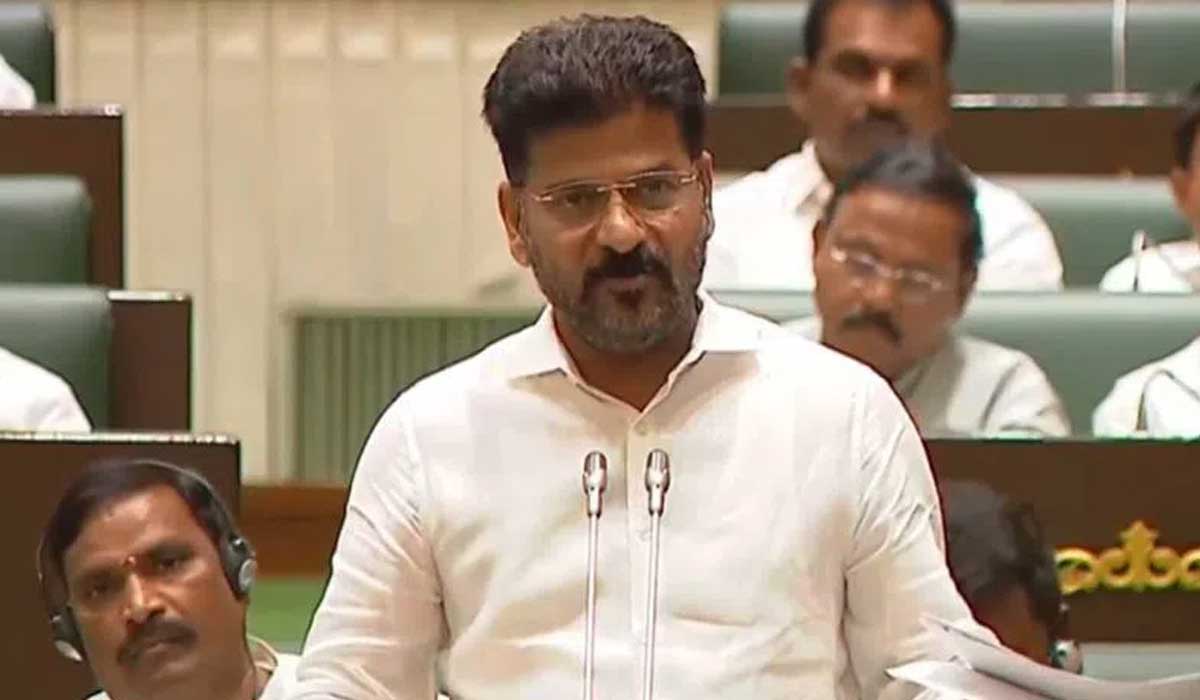Hyderabad Congress Govt Pushes Telangana into Debt Spiral, Plans Record Borrowing of Rs.30,000 Crore
Hyderabad Congress Govt Pushes Telangana into Debt Spiral, Plans Record Borrowing of Rs.30,000 Crore

Hyderabad Congress Govt Pushes Telangana into Debt Spiral has alarmed economists and political analysts with its unprecedented decision to borrow Rs.30,000 crore in the final quarter of the financial year 2024-25. This move not only disrupts the State’s budgetary framework but also brings Telangana’s debt burden dangerously close to the liabilities it inherited at its formation in 2014.
Read Also:https://munsifdaily.com/hyderabads-numaish-set-to-kick-off-from-jan-3/
Hyderabad Congress Govt Pushes Telangana into Debt Spiral Massive Borrowing Spree Raises Concerns
The government’s borrowing calendar indicates plans to participate in auctions on all 12 Tuesdays during the January-March quarter, raising Rs.10,000 crore each month. This aggressive approach has raised questions about fiscal discipline and governance.
Key concerns include:
- Market Debt Surge: The planned borrowing will push the State’s market debt to Rs.70,757 crore for the year, nearing the Rs.72,658 crore liabilities Telangana inherited in 2014.
- Exceeding Borrowing Limits: Telangana’s borrowing ceiling, based on its Gross State Domestic Product (GSDP), was restricted to Rs.49,255 crore by the Centre. With Rs.40,757 crore already borrowed by December, the additional Rs.30,000 crore will overshoot this limit by a staggering Rs.21,502 crore.
Violations of Fiscal Responsibility Norms
Under the Fiscal Responsibility and Budget Management (FRBM) Act, States are permitted to borrow up to 3.5% of their GSDP. Telangana’s GSDP for 2024-25, pegged at Rs.16 lakh crore, allows for borrowing up to Rs.57,112 crore. However, the Centre’s restrictions have further tightened this limit. Despite these constraints, the Congress government is pushing for excessive borrowing.
RBI and Union Ministry Approval
The Reserve Bank of India (RBI) has clarified that borrowing depends on approval from the Union Finance Ministry under Article 293(3) of the Constitution. However, the State Finance Department has yet to confirm if the Centre has approved this exorbitant borrowing plan.
Economic Fallout of Reckless Borrowing
Economists and opposition leaders warn that this borrowing spree is not aligned with any significant infrastructure development or public service improvement. Instead, funds are being channeled into populist schemes that offer little long-term economic benefit.
Expert Opinions
- Fiscal Discipline Concerns: Experts have criticized the Congress government for blatantly disregarding fiscal responsibility.
- Economic Impact: “The additional debt could cripple Telangana’s economy for years, stalling growth and reducing the State’s ability to invest in critical sectors,” an economist stated.
Opposition Reacts Strongly
The Bharat Rashtra Samithi (BRS) has been vocal in its criticism of the Congress government’s fiscal policies:
- Accusations of Financial Mismanagement: A senior BRS leader remarked, “This is not governance but financial anarchy. Telangana, once a model of fiscal prudence under K Chandrashekhar Rao, is now heading towards a debt disaster.”
- Double Standards: The Congress, which previously accused the BRS of creating a debt trap, is now pursuing policies that could lead to even worse outcomes.
Telangana’s Debt Evolution
In the years since its formation in 2014, Telangana has emerged as a top performer in capital expenditure, driving economic growth through development projects. However, this trajectory now appears at risk due to the Congress government’s borrowing spree.
Comparative Insights
- Under previous administrations, borrowing was tied to growth-oriented investments.
- Current borrowing lacks transparency and appears focused on short-term populist measures.
What Lies Ahead?
The Congress government’s borrowing plans underscore the urgent need for fiscal prudence and strategic planning. Without corrective measures, Telangana risks losing its economic momentum and sliding into a debt trap.
Recommendations for Financial Stability:
- Audit Borrowing Plans: Ensure borrowing aligns with FRBM limits and has long-term economic benefits.
- Focus on Infrastructure: Redirect funds to projects that boost GSDP and create sustainable growth.
- Increase Transparency: Regular updates on debt utilization and approval processes to build public confidence.
Conclusion
Telangana’s current fiscal strategy under the Congress government is fraught with risks that could undermine the State’s economic stability. As the borrowing clock ticks, it remains crucial for policymakers to prioritize financial discipline and transparency to safeguard the State’s future.
